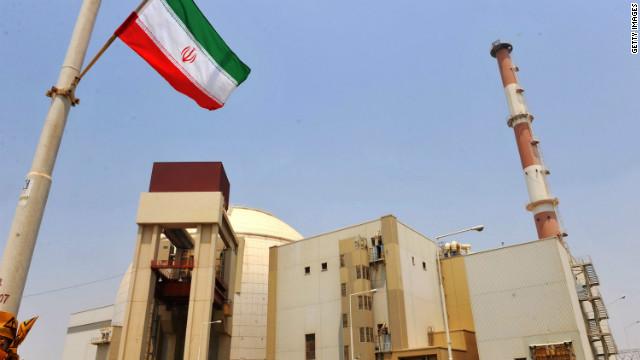
Iran has been under pressure to accept international demands to restrict its nuclear program.
Iranian nuclear negotiators arrived Friday and began consultations with Chinese and Russian counterparts on the eve of international talks on the country's nuclear program, state media reported.
Iran's top negotiator, Saeed Jalili, has said he intends to bring "new initiatives" to talks Saturday with delegates from the five permanent members of the United Nations Security Council -- the United States, France, Russia, China, and Britain -- and Germany.
That group has spearheaded diplomatic efforts to persuade Iran to rein in its nuclear program, which Iran has said is purely peaceful but which U.N. and Western leaders suspect of having military aims, including a possible nuclear weapon.
On Friday, Iran's official Press TV cited a source close to the Iranian delegation in reporting that Iran sees little encouraging coming from the remarks of European and U.S. officials ahead of the talks.
Iran has been under increasing pressure to accept international demands to restrict its nuclear program, including a series of increasingly harsh economic sanctions imposed by European nations and the United States.
Last month, Iranian officials signaled they were ready to engage with the International Atomic Energy Agency, the U.N. nuclear watchdog, over the issue. The European Union said Monday that Iran had agreed to Saturday's talks in Istanbul.
Iran suggested last week that one proposal may be a reduction in the amount of uranium it enriches to 20%, but it was unclear Friday if such a proposal was still on the table.
While the enrichment isn't enough to create nuclear weapons, which require a uranium content of 90% or more, analysts and inspectors say it is step toward being able to create a nuclear weapon.
Last month, the IAEA noted what it called a sharp and troubling increase in Iran's uranium enrichment capabilities.
Iran says the enrichment is for research and medical needs.
As a signatory to the Nuclear Nonproliferation Treaty, Iran has the right, like other countries, to enrich uranium for commercial and research reactors. But the same facilities that are used for peaceful enrichment can be used to enrich uranium for a bomb, and inspectors say they have not been able to fully gauge Iran's intentions.
IAEA inspectors traveled to Iran in January and again in February to discuss the issue but said Iran refused to grant inspectors access to a military base the agency believes may have been used to test explosives that could be used to detonate a nuclear bomb.
Last month, IAEA director Yukiya Amano said the agency has credible information that Iran has engaged in "activities relevant to the development of nuclear explosive devices."
On Thursday, U.S. Secretary of State Hillary Clinton admonished Iranian officials to come to Istanbul willing to make progress on international demands.
"This is a chance for Iran to credibly address the concerns of the international community," Clinton said. "Iran, coming to the table, needs to demonstrate that they are serious."
A top Iranian religious leader, Ayatollah Mohammad Emami-Kashani, countered Friday that Western leaders should back off, according to the official Islamic Republic News Agency.
They should, instead, "react to Iran's proposals logically and stop the current unconstructive accusations against the Islamic Republic," IRNA quoted him as saying.
Aucun commentaire:
Enregistrer un commentaire
welcome